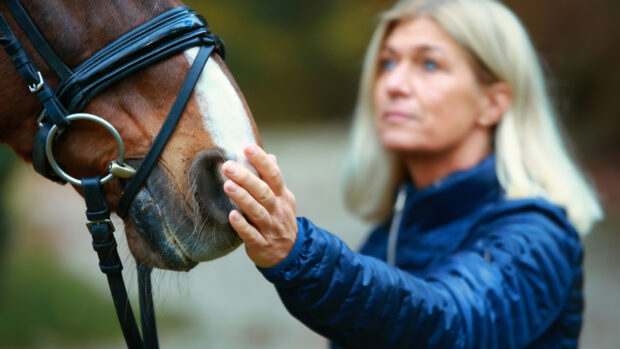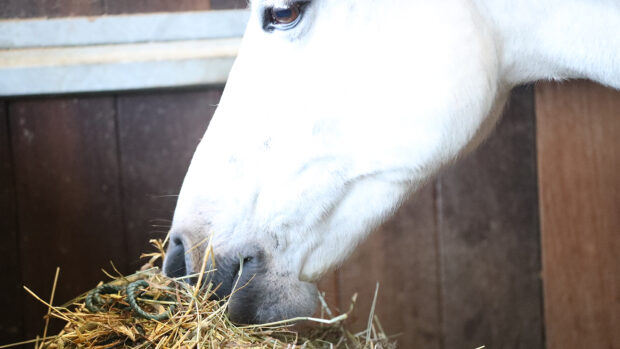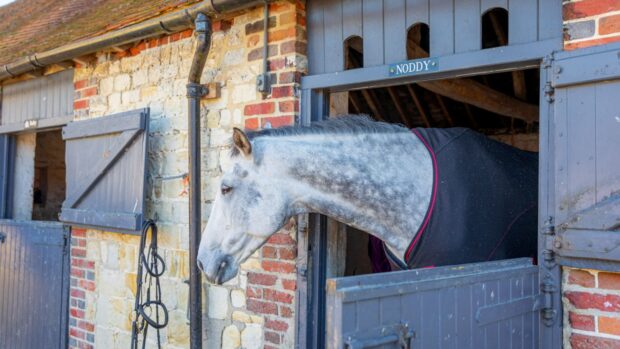Advertisement Feature
Horses were designed to eat a high fibre diet. For a trouble-free winter, take a look at this advice from Dengie.
The winter months are a true test of the dedication of horse owners as we spend more time battling poached gateways, frozen taps and mucking out that, added to dark evenings, leaves less time for riding.
The UK has a relatively narrow temperature range compared to other countries. Native ponies who live a nearly natural life with vast acres to roam over can usually gain sufficient nutrition on top of using up their fat stores to survive the colder months quite happily. However, horses and ponies who often spend time confined in their stable or squelchy paddock over the winter may need a helping hand.
The nutritional value of grass declines in winter. In spring, young grass plants have a greater proportion of leaf, which is where nutrients such as protein and minerals are found. As the year progresses, the amount of leaf declines while fibre and indigestible materials increase which means your horse gets less out of their pasture. Some individuals, such as youngstock and veterans, are less efficient at digesting fibre, putting them at greater risk of losing weight.
Winter weight loss
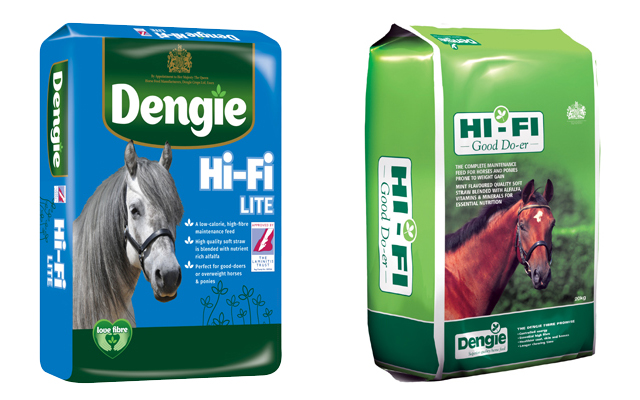
If your horse is carrying a little too much weight, winter presents the ideal opportunity for him to lose a few pounds. Try not to be tempted to over-feed and over-rug your horse if he’s a good-doer. The best way to keep him warm is to feed plenty of low-calorie fibre feeds such as Dengie Hi-Fi Lite or Hi-Fi Good-Doer as heat is produced when fibre is fermented in the digestive system.
Fibre as fuel
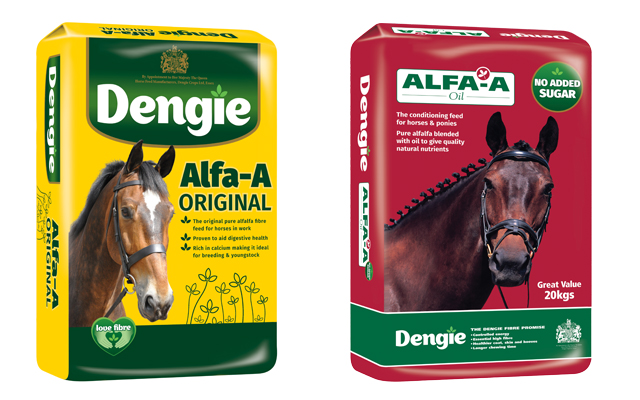
Did you know that fibre can provide as much energy as mixes and cubes? For example, Dengie Alfa-A Original contains the same level of energy as a cool mix at 10MJ/kg, but with about 10 times less starch. Oil is another slow-release energy source, and when combined with a good quality fibre, such as alfalfa in Dengie Alfa-A Oil, it can provide as much energy as a conditioning mix or cube.
Chewing for health
Horses were designed to eat fibre and spend the majority of their day eating. If your horse has less turnout during the winter months, it’s important to keep him chewing for as long as possible to support his behavioural and digestive health.
Feed type can influence chew time. Researchers discovered that a horse will chew a kilogram of hay 3,400 times in about 40 minutes, but will chew one kilogram of oats 850 times in only 10 minutes. Feeding fibre means more chews and helps keep a stabled horse occupied for much longer.
A good set of teeth is vital for getting the most out of feed. Chewing helps to break it up into smaller particles allowing the nutrients locked inside to be more readily extracted and absorbed.
Stay hydrated
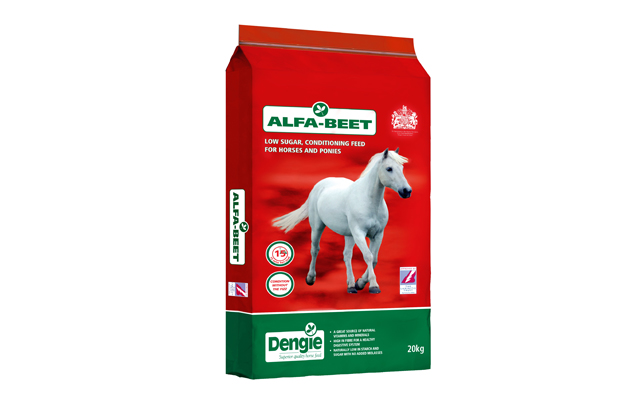
Some horses become reluctant to drink when the weather is colder. To help your horse stay hydrated, feeding soaked feeds can increase his moisture intake. Soaked feeds, such as Dengie Alfa-Beet or Alfalfa Pellets are also particularly beneficial for older horses or those with poor teeth who may struggle to chew.
Winter Feeding Tips
- Use fibre and oil as con
 ditioning sources to help avoid over-excitable behaviour
ditioning sources to help avoid over-excitable behaviour - Fibre is the horse’s central heating system – keep your horse warm by feeding lots of fibre
- Use small-holed haynets to help keep your horse occupied and his forage ration last longer
- Use the winter months to help promote weight loss, if needed. Try not to over-rug or over-feed and try to keep exercising as much as the winter weather will allow
- Feed a high-fibre diet to help promote digestive health, maintain regular bowel movements and help reduce the risk of colic


